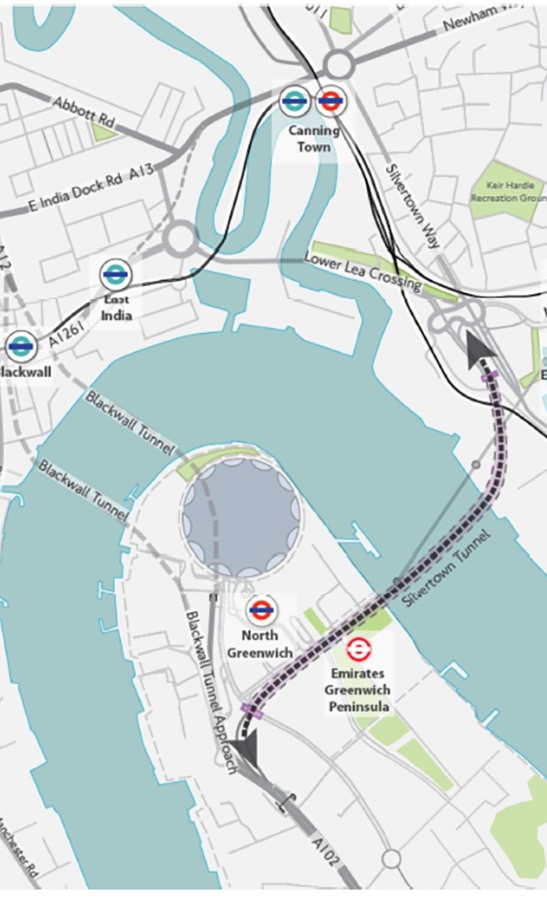London’s transportation authority has moved into the early stage of procuring a planned $1.4-billion highway tunnel under the River Thames on the city’s east side. If all goes to plan, Transport for London will advertise the project next spring as a 30-year design-build-finance-operate contract, with a construction possibly in 2018.
The proposed 1-kilometer-long Silvertown crossing is set to head east from near the south portal of the existing Blackwall tunnel on Greenwich Peninsula and go under the river to the north bank near the Royal Docks. It is designed with twin 11.45-m-dia bores to be driven by tunnel boring machines.
The agency is seeking comments from stakeholders through Nov. 29. The project has its critics, including those concerned about air-quality effects of increased traffic in the area. But commuters would welcome reduction of heavy traffic on the existing Blackwall crossing, which is frequently congested.
Each of the existing bores of the Blackwall tunnel now handles around 3,000 vehicles per hour for much of the working day, and congestion is set to worsen.
To fund the project, both the existing and the planned tunnels will be tolled at a level to match the charge for using the next major crossing to the east at Dartford, about 30 km away.
The new National Infrastructure Commission is expected to include the Silvertown crossing in a just-launched review of London’s transportation infrastructure needs. Announced this October, the high-level panel will advise successive governments of national infrastructure priorities.
George Osborne, the government’s chief financial minister, pledged $152 billion of infrastructure spending by 2020, about 15% for highways.
Former Transportation Secretary Andrew Adonis chairs the commission, whose members include Sir John Armitt, an engineer who was chairman of the organization that built infrastructure for London’s 2012 Olympic and Paralympic Games and also sat on the government commission on future airports needs in southeast England.
Establishing the infrastructure commission “was a bold and positive move by government, one which can enable us to reach the essential goal of a long-term infrastructure strategy,” says Armitt. “Through this new political consensus we can achieve an infrastructure revolution."




Post a comment to this article
Report Abusive Comment